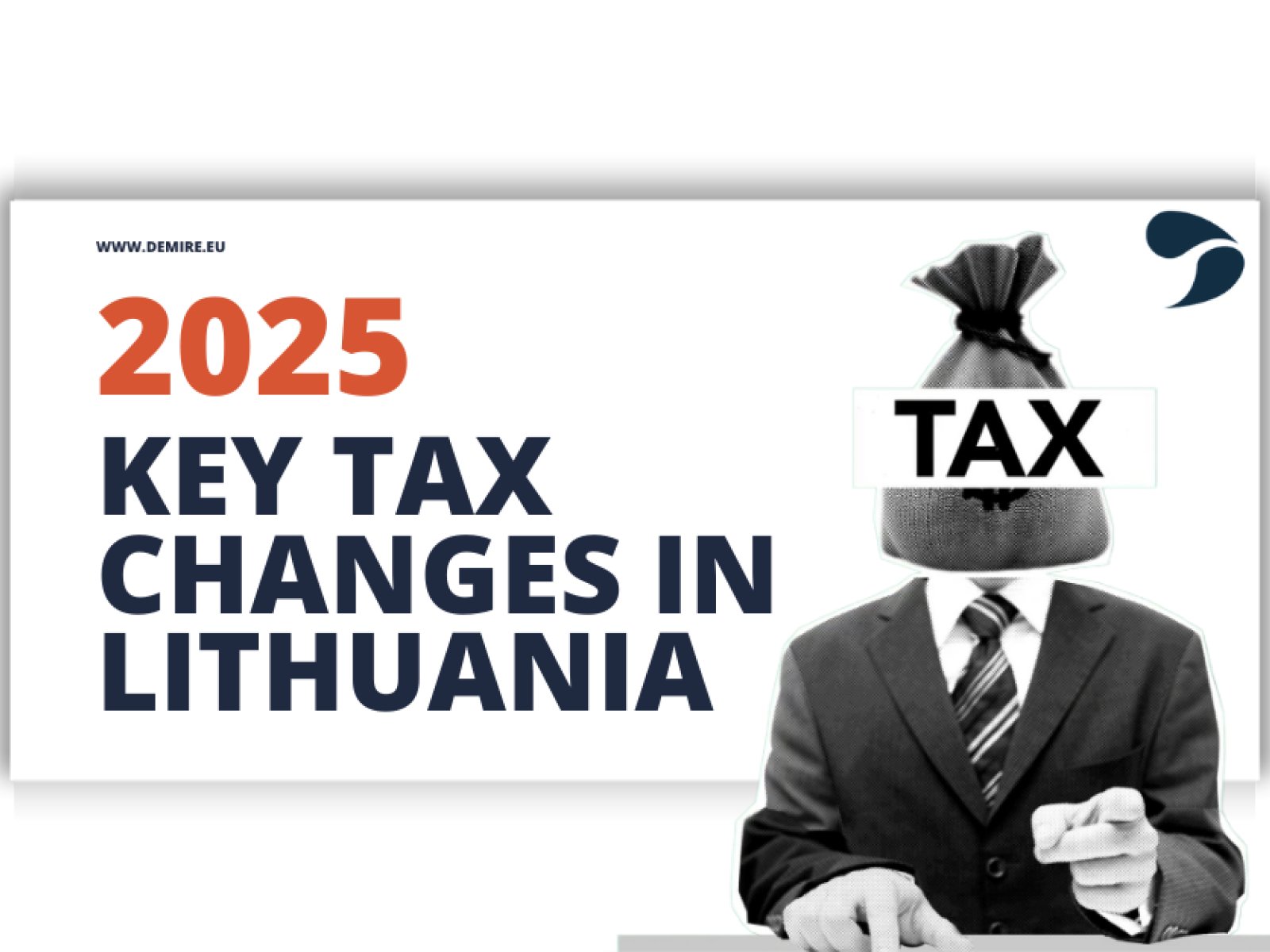Key Tax Changes in Lithuania for 2025: Corporate Tax, Dividends, and Wages
2025 01 20As we step into 2025, Lithuania is implementing significant tax reforms affecting corporate taxation, dividend distribution, and wages. Understanding these changes is essential for businesses and employees alike to ensure compliance and optimize financial planning.
Corporate Income Tax: Adjustments for Large and Small Businesses
Increased Rates:
Starting from January 1, 2025, Lithuania has raised its standard corporate income tax rate to 16%, marking an increase from the previous rate. This change applies across the board for all companies, regardless of their fiscal year alignment.
Special Provisions for Small Businesses:
Small enterprises, defined as those with no more than 10 employees and annual revenues below EUR 300,000, will experience a tax rate increase to 6%. This measure seeks to balance revenue collection with the promotion of small business growth.
Dividend Taxation: New Standard Rate
Rate Increase:
The taxation on dividends has been standardized at 16%, aligning with the corporate income tax rate. This update aims to simplify the tax system while ensuring consistency in revenue collection from profit distributions.
Impact on Non-Residents:
Income derived from the sale or transfer of property ownership by non-residents, when not through a permanent establishment, will also attract the 16% tax rate. This change emphasizes Lithuania’s focus on equitably taxing all profit-generating activities within its borders.
Wage Adjustments: Higher Minimum Standards
Increase in Minimum Wage:
To support employees amid economic shifts, Lithuania’s minimum monthly wage (MMA) has been elevated to EUR 1,038 (from EUR 924). Similarly, the minimum hourly wage (MVA) has been raised to EUR 6.35 (from EUR 5.65). These changes reflect the government's commitment to improving living standards while aligning with inflationary trends.
Implications for Employers and Employees:
This wage adjustment impacts calculations for non-taxable income and allowances, including daily allowances for international business trips. Employers must ensure payroll systems are updated to reflect these changes to avoid penalties.
Preparing for Compliance
To ensure a smooth transition, businesses and individuals should:
• Review financial plans to incorporate the new tax rates.• Update payroll systems to comply with the revised wage thresholds.
• Consult legal and financial advisors to optimize tax strategies under the updated regulations.
Conclusion
Lithuania’s tax updates for 2025 signify its efforts to streamline the tax system while balancing economic growth and equity. Businesses, small or large, and employees should stay proactive in adapting to these changes. Demire Inc stands ready to assist you in navigating these adjustments with tailored financial and legal consulting services.
Contact us today to ensure your compliance and optimize your financial strategy for 2025.

